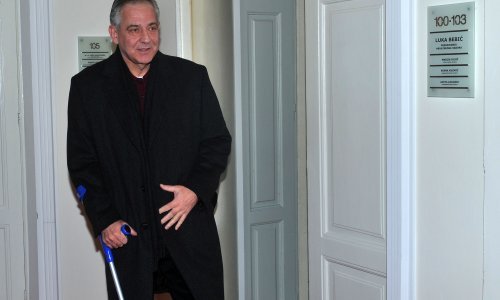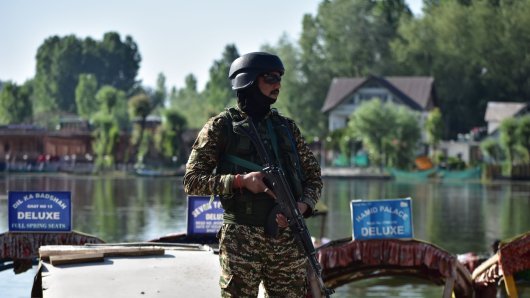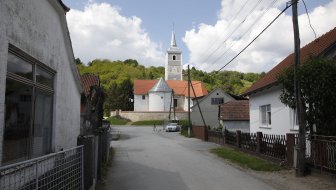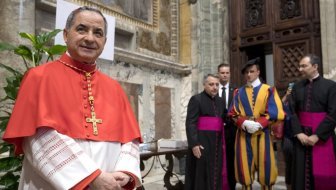European Union foreign ministers said in their conclusions on Tuesday that Croatia had achieved encouraging progress in combating corruption.
Progress is encouraging in many areas, including the area of the rule of law and the fight against high-level corruption, the EU foreign ministers said in their conclusions.
Draft conclusions, which were prepared before last week's arrest of former Prime Minister Ivo Sanader, made no mention of the fight against corruption in high places.
The ministers held a regular monthly meeting to discuss EU enlargement, using documents which the European Commission had published early in November -- the enlargement strategy and progress reports on membership candidates and potential candidates -- as the basis for their discussion.
Addressing a news conference, the chairman of the Council for General Affairs, Belgian Foreign Minister Steven Vanackere, declined to comment on the Sanader case in the context of closing the chapter on the judiciary and fundamental rights in Croatia's accession talks.
Compared with the draft, the final conclusions contained one more positive assessment for Croatia, in the part relating to its cooperation with the Hague war crimes tribunal.
The Council notes the generally good cooperation of Croatia with the ICTY (International Criminal Tribunal for the former Yugoslavia), the conclusions said.
ICTY Chief Prosecutor Serge Brammertz, acting at the invitation of the Belgian EU Presidency, attended the meeting to inform the ministers about the cooperation of Croatia and Serbia with his office.
The Council says that full cooperation remains essential in accordance with the Negotiating Framework. It notes that the inter-agency task force has begun pursuing important new avenues of inquiry and calls upon Croatia to continue the administrative search to account for missing military documents.
The conclusions say that further efforts are required with regard to the independence and efficiency of the judiciary, the fight against corruption at all levels, as well as in the area of public administration reform, minority rights, refugee return and war crimes trials. The Council encourages Croatia to step up efforts to meet the remaining benchmarks, including a convincing track record on the competition policy and the judiciary and fundamental rights.
The Council welcomes the good progress Croatia has made in meeting the membership criteria. The accession negotiations are in a final stage, and preparations on a draft accession treaty are making steady progress. The end of the negotiations is within reach, the Council said in its conclusions.
Croatia was commended for playing an active role in regional cooperation and for improving its relations with its neighbours, and the entry into force of the arbitration agreement with Slovenia was welcomed. EU members invited Croatia to continue dealing with all outstanding bilateral and regional issues in cooperation with the countries concerned.
The Council also expressed hope that further progress in negotiations would be noted at the next intergovernmental accession conference, scheduled for December 22.
Minister Vanackere said that the aim of the Belgian Presidency was to close three chapters at that conference -- Justice, Freedom and Security; Environment; and Foreign, Security and Defence Policy -- and that a final decision would be known after a meeting of the Committee of Permanent Representatives (COREPER), which also takes place on December 22, shortly before the ministerial accession conference.
Slovenian Foreign Minister Samuel Zbogar said on Monday that the Slovenian Parliament had not discussed the three chapters, but added that the Slovenian government believed that Parliament would confirm the negotiating positions for two chapters -- Justice, Freedom and Security, and Foreign, Security and Defence Policy, while the third chapter, Environment, was still being debated by the Council's enlargement task force.
When asked if Croatia could close the Environment chapter on December 22, Zbogar replied that he could not say it at the moment. When asked if Slovenia had any reservations about the chapter, Zbogar said that Slovenia had no reservations, that a common EU negotiating position was still being discussed, and that Slovenia would give its opinion regarding Croatia's Ecological and Fisheries Protection Zone in the Adriatic Sea.
In the part of the conclusions relating to the enlargement strategy, the Council says that regional cooperation and good neighbourly relations are essential parts of the enlargement process. They contribute to reconciliation and a climate conducive to addressing open bilateral issues and the legacy of the past.
The Council encourages all parties concerned to address bilateral issues falling outside areas of EU competence and/or contractual obligations towards the EU, in a constructive spirit and taking into account overall EU interests, the conclusions say.
A part saying that unresolved bilateral issues should not obstruct the enlargement process and that the EU is ready to help in seeking solutions was struck out from the conclusions at Slovenia's request.



































